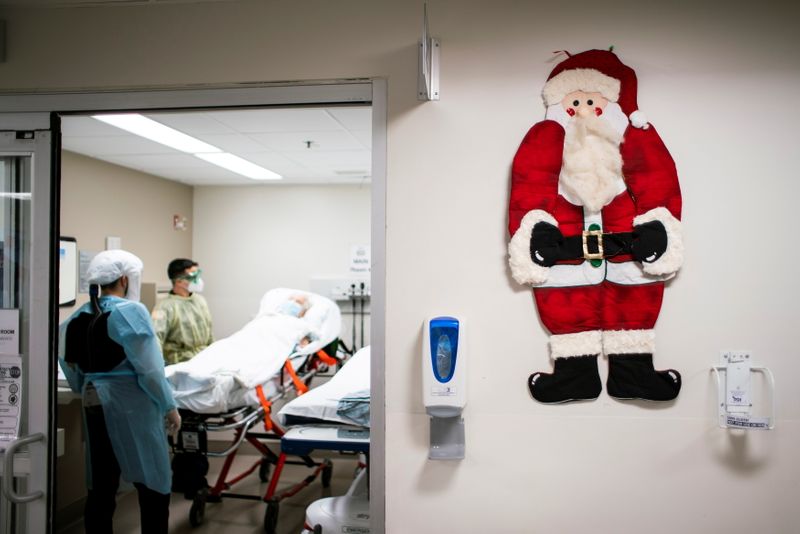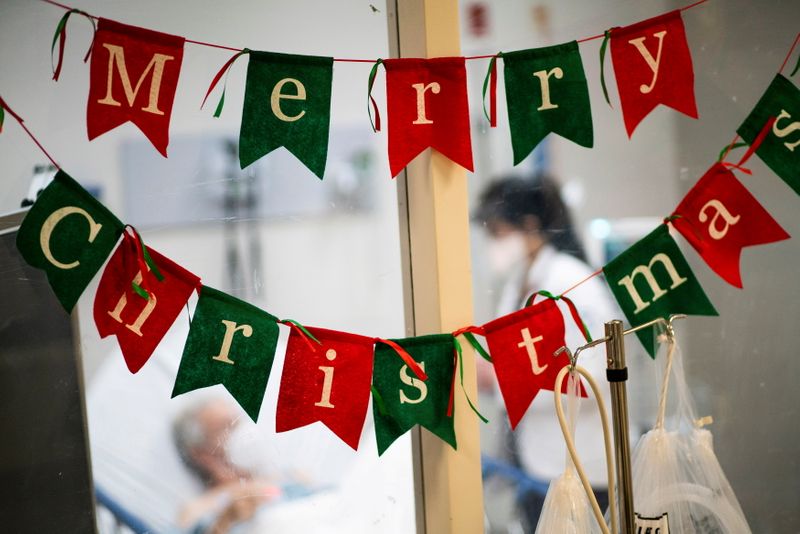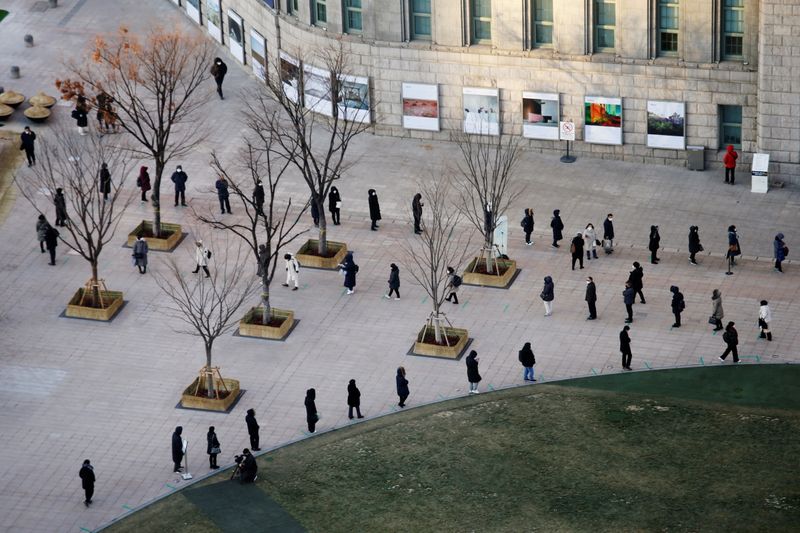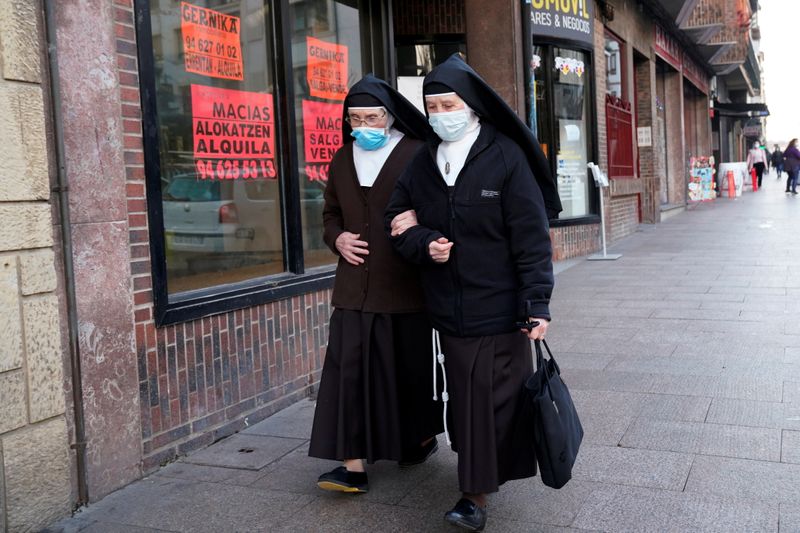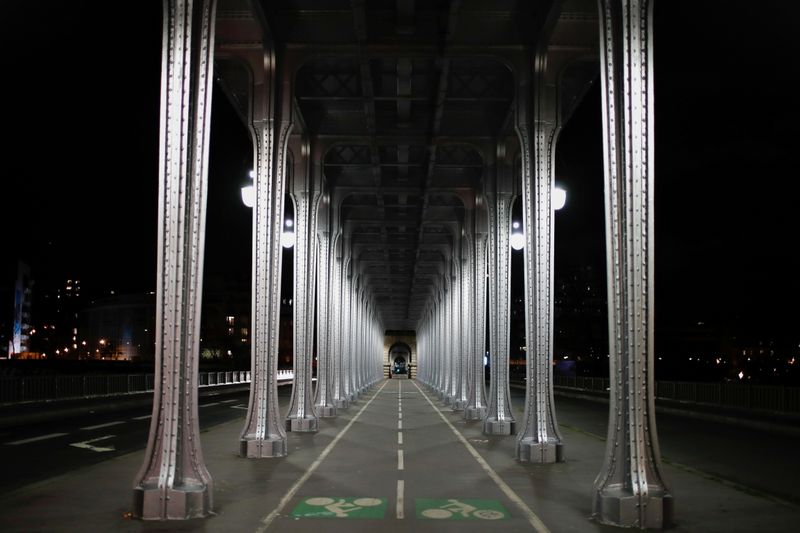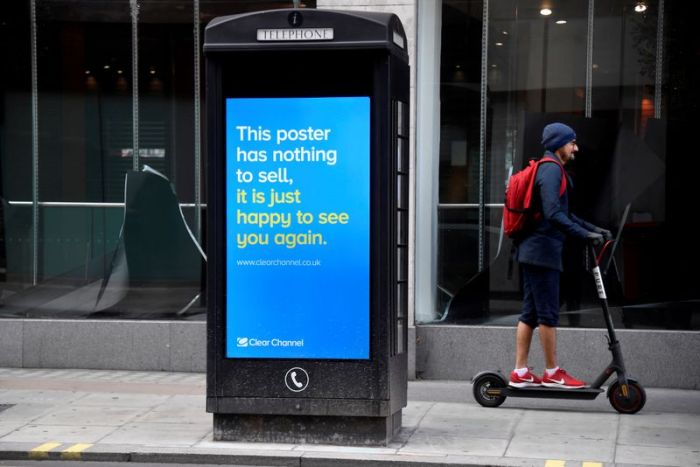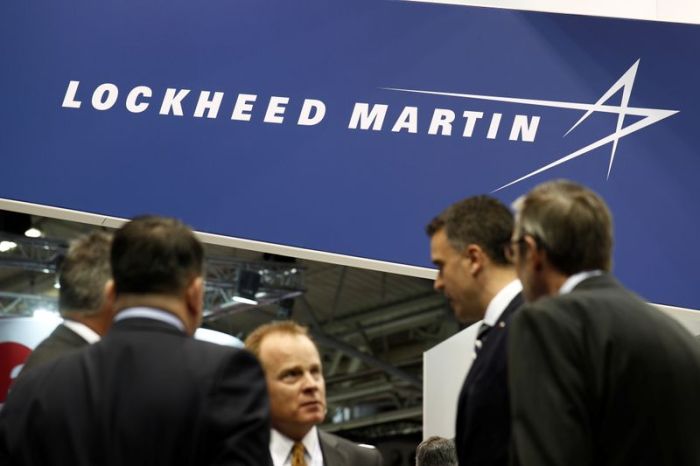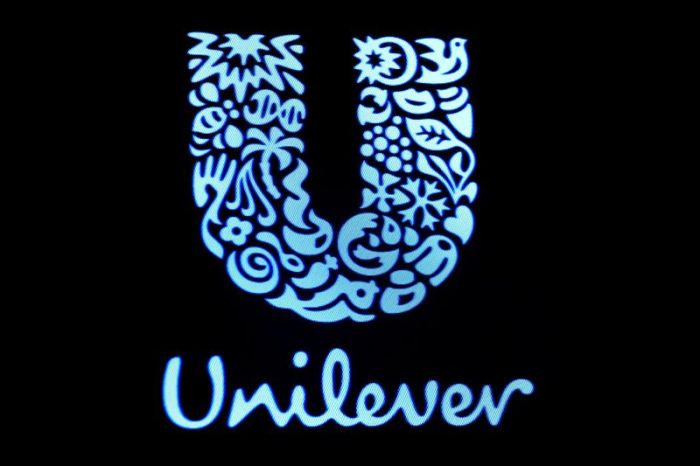LONDON (Reuters) -Coronavirus vaccine approvals have brought comfort and joy for many this Christmas but failed to halt new curbs on travel and gatherings as COVID-19 cases rise worldwide and deaths in the United States surpassed 3,000 for a third straight day.
Scientists and government leaders have hailed the vaccines as a huge success in attacking the pandemic, but only once they are administered, a process likely to take months, even in the world’s richest countries.
More than 73.68 million people have been reported to be infected by the coronavirus globally and 1,655,424 have died, according to a Reuters tally, with the United States leading the way in the number of deaths and infections.
A fast-spreading U.S. surge is pushing hospitals to the brink, weeks after millions took to the air and roads for the Thanksgiving holiday, with admissions rising to record heights for a 19th straight day.
Now many countries are preparing for the Christmas rush and Hans Kluge, director of the World Health Organization’s European regional office, said travelling was not worth the risk.
“There remains a difference between what you are being permitted to do by your authorities and what you should do,” he said in a statement. “The safest thing right now is to remain at home.”
Travel plans for thousands of Australians were thrown into chaos when states and territories imposed border restrictions after 28 COVID-19 cases were detected in Sydney.
Large areas of England will be added to the “very high alert” COVID-19 tier category this weekend, placing residents under the most stringent curbs even as the government tries to defend a plan to relax curbs for five days over Christmas.
“It doesn’t look like the tier system is holding the epidemic wave back, unfortunately” John Edmunds, a member of the government’s Scientific Advisory Group for Emergencies, told Sky News.
“I think we are going to have to look at these measures and perhaps tighten them up.”
South Korea, praised worldwide for its handling of the pandemic in its early stages, reported 1,062 new cases on Friday, its second-highest ever daily tally, as the government agonised over tighter restrictions.
Austrians abroad were heading home early for Christmas ahead of new quarantine rules coming in on Saturday. The country is going into a third lockdown after Christmas, the national news agency APA reported on Friday.
‘NO SAFE PLACE’
Swiss Health Minister Alain Berset will ask cabinet colleagues on Friday to close restaurants for a month, two newspapers reported.
The Spanish capital of Madrid, one of Europe’s worst COVID-19 hotspots at the start of the pandemic, has progressively reduced its spread without closing down clubs or shops.
But with an average notification rate of 244 cases per 100,000 inhabitants over the last 14 days, the region is back to levels seen before the second wave started.
Poland may introduce even stricter curbs, Prime Minister Mateusz Morawiecki said in an interview published on Friday, a day after the government announced a “national quarantine” would start after Christmas.
Police in Lithuania were planning to set up roadblocks to enforce a lockdown.
“There is no safe place in Lithuania,” Prime Minister Ingrida Simonyte told reporters last week.
As government leaders across the world address their nations on how to fight the pandemic, U.S. President Donald Trump has been largely silent, with his critics accusing him of abrogating his responsibilities as cases soar.
U.S. Vice President Mike Pence received his vaccine live on television on Friday, seeking to shore up public support for vaccinations after U.S. deaths from the coronavirus surpassed 3,000 for a third straight day.[L1N2IY0WG]
French President Emmanuel Macron tested positive for the coronavirus on Thursday, prompting a track-and-trace effort across Europe following his numerous meetings with EU heads of government.
EU states will start vaccinations against COVID-19 on Dec. 27 as Europe tries to catch up with Britain and the United States after what some have criticised as a slow EU approval process for the shots.
The European Union has been waiting for the European Medicines Agency to approve a vaccine from Pfizer Inc and German partner BioNTech SE. The EMA is expected to make an announcement on Dec. 21.
The U.S. Food and Drug Administration will “rapidly” work towards granting emergency approval of Moderna Inc’s COVID-19 vaccine candidate, FDA Commissioner Stephen Hahn said on Thursday.
A panel of outside advisers to the FDA overwhelmingly endorsed the emergency use of the vaccine, virtually assuring a second option for protection.
Last week, the same panel backed the Pfizer vaccine, leading to an FDA emergency use authorisation a day later.
(Reporting by Reuters bureaux worldwide; Writing by Nick Macfie; Editing by Jon Boyle, William Maclean)

